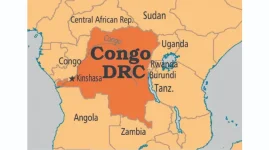SADC and the East African Commission want to end the fighting in Congo for more than just peace. They aim to fix the problems caused by old colonial borders that split African people into groups fighting each other. These borders led to ethnic wars like the one happening right across the resource-rich DRC today. The M23 rebel group started on March 23, 2009, when an agreement was signed between Congo and certain Tutsi fighters.
M23 fought against the Congo government in 2012, claiming broken promises about putting Tutsi members in the army and sharing resources fairly. Last January, this group took over the mineral-rich Goma area after starting new fights in 2022. They first grabbed North Kivu, where valuable coltan mines exist. The UN reports that M23 makes $800,000 yearly just from taxes on this mineral.
The rebels captured several towns recently before entering Goma, and their leaders openly said they plan to march toward Kinshasa, the capital city. Many believe Western countries fund M23 to steal eastern Congo's minerals. Both Britain and America face accusations of keeping the conflict going, which has forced more than 400,000 people from their homes this year alone.
One report from February claimed Paul Kagame of Rwanda could not have helped violence in Congo without US and UK guns and money since 1998. That violence reportedly caused over 5.4 million deaths during its first ten years. The article questioned what these foreign governments gain by allowing such suffering to continue with taxpayer money.
African leaders decided to address these problems together at a meeting held recently in Tanzania. SADC and EAC members showed rare unity, proving that working together might finally free Congo from its long-running troubles. They gathered at a historic place where many African freedom struggles began, speaking with one voice about ending the suffering.
President Mnangagwa, who chairs SADC, took the lead by saying only African solidarity can bring peace to Congo. He stressed that Africans must stay united as they were during their fights against colonialism. He called for everyone to tackle the issues preventing peace in eastern Congo with determination and purpose.
Mnangagwa pointed to African values and global principles as guides for creating a unified response to the crisis. The real issue goes beyond ethnic conflicts that many blame for the war. The fighting centers around controlling Congo's abundant minerals and reducing the local population to make resource grabbing easier for outside powers.
Africans must unite against Western interference, including recent American pressure on South Africa. The problems facing Congo remind everyone why the continent needs "African solutions to African problems" as a real policy, not just a saying. Countries across Africa should listen carefully and act together against these threats.
M23 fought against the Congo government in 2012, claiming broken promises about putting Tutsi members in the army and sharing resources fairly. Last January, this group took over the mineral-rich Goma area after starting new fights in 2022. They first grabbed North Kivu, where valuable coltan mines exist. The UN reports that M23 makes $800,000 yearly just from taxes on this mineral.
The rebels captured several towns recently before entering Goma, and their leaders openly said they plan to march toward Kinshasa, the capital city. Many believe Western countries fund M23 to steal eastern Congo's minerals. Both Britain and America face accusations of keeping the conflict going, which has forced more than 400,000 people from their homes this year alone.
One report from February claimed Paul Kagame of Rwanda could not have helped violence in Congo without US and UK guns and money since 1998. That violence reportedly caused over 5.4 million deaths during its first ten years. The article questioned what these foreign governments gain by allowing such suffering to continue with taxpayer money.
African leaders decided to address these problems together at a meeting held recently in Tanzania. SADC and EAC members showed rare unity, proving that working together might finally free Congo from its long-running troubles. They gathered at a historic place where many African freedom struggles began, speaking with one voice about ending the suffering.
President Mnangagwa, who chairs SADC, took the lead by saying only African solidarity can bring peace to Congo. He stressed that Africans must stay united as they were during their fights against colonialism. He called for everyone to tackle the issues preventing peace in eastern Congo with determination and purpose.
Mnangagwa pointed to African values and global principles as guides for creating a unified response to the crisis. The real issue goes beyond ethnic conflicts that many blame for the war. The fighting centers around controlling Congo's abundant minerals and reducing the local population to make resource grabbing easier for outside powers.
Africans must unite against Western interference, including recent American pressure on South Africa. The problems facing Congo remind everyone why the continent needs "African solutions to African problems" as a real policy, not just a saying. Countries across Africa should listen carefully and act together against these threats.












